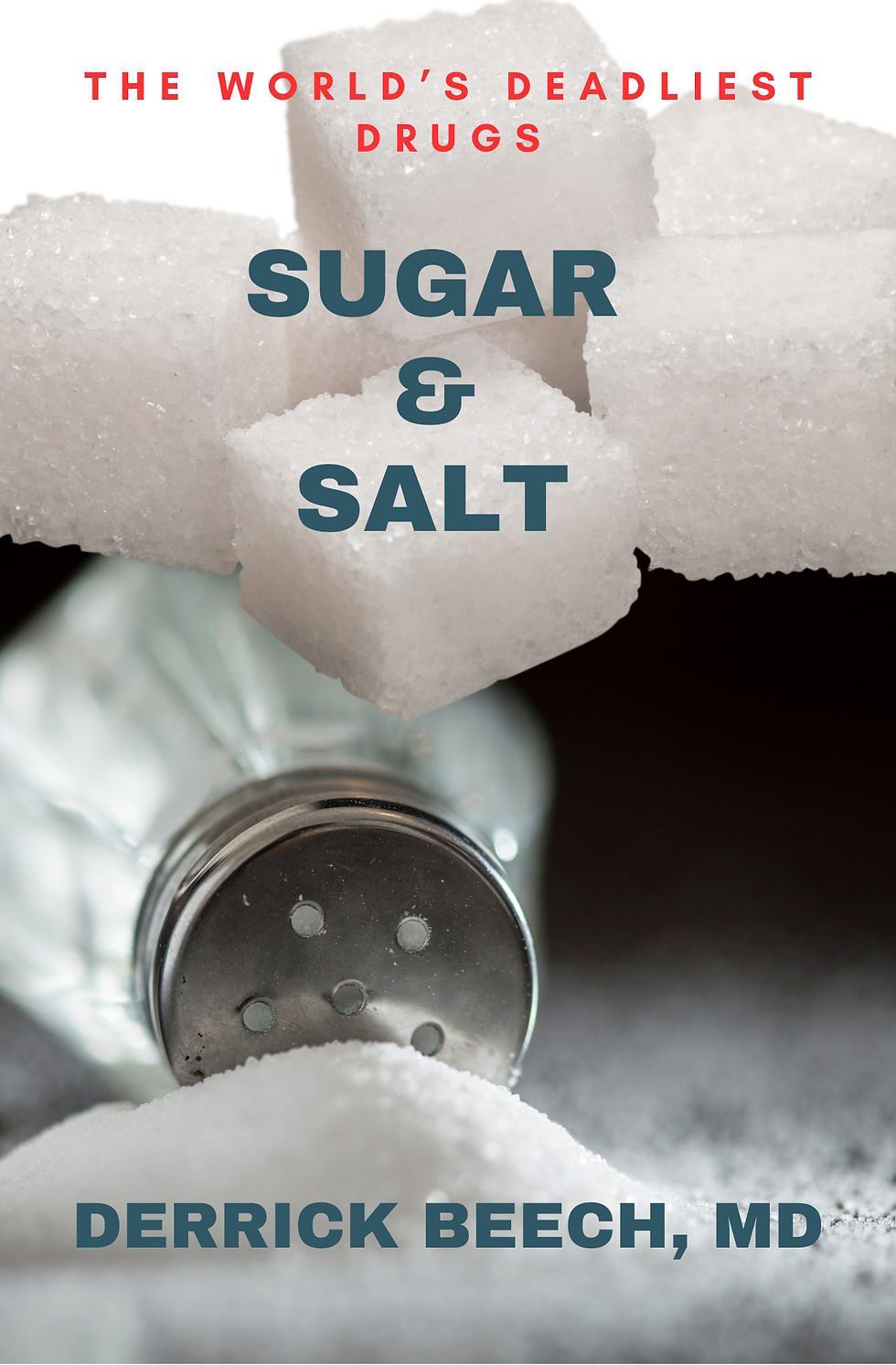A Salty Situation: The Risks of High Salt Consumption in America
- Votum Press

- Aug 7, 2023
- 2 min read

In the United States, processed foods have become a staple in many households. While these products are convenient and often tasty, they frequently contain high levels of salt. Excessive salt intake can lead to several health issues that are worth understanding and addressing.
High Blood Pressure
One of the most well-known effects of high salt intake is elevated blood pressure. Salt makes the body hold onto more water, increasing blood volume and pressure within the blood vessels. Consistently high blood pressure is a major risk factor for heart disease, stroke, and other cardiovascular problems.
Heart Disease
Excessive salt consumption is closely linked to heart diseases such as heart failure and coronary artery disease. High blood pressure puts extra strain on the heart, making it work harder, which can lead to long-term damage.
Stroke
The relationship between high salt intake and stroke is tied to the effect of salt on blood pressure. High blood pressure can cause blood vessels in the brain to clog or burst, leading to a stroke.
Kidney Function
The kidneys play a crucial role in balancing the body's salt levels. Consuming too much salt can strain the kidneys and lead to kidney disease over time, especially in those already at risk for kidney problems.
Obesity
While salt itself doesn't cause weight gain, salty processed foods are often high in calories and unhealthy fats. These can contribute to unhealthy weight gain and obesity, further exacerbating other health issues.
Hidden Dangers in Processed Foods
What makes the salt problem particularly challenging in America is its hidden presence in processed foods. From canned soups to frozen dinners, high levels of sodium are often masked by flavors and marketing. Many people unknowingly consume far more salt than the recommended daily intake.
Conclusion
The harmful effects of eating too much salt are numerous and serious. Educating oneself about the salt content in food and making mindful choices can go a long way in maintaining good health.
At Votum Press, we urge our readers to be aware of their salt intake and to consult with healthcare providers for personalized dietary recommendations. Reducing reliance on processed foods and incorporating fresh, whole ingredients can make a significant difference.
This article is for informational purposes only and should not be taken as medical advice. Always consult with a healthcare provider for personalized recommendations.

For more insights into health and wellness, continue following Votum Press. Together, we can make informed decisions for healthier lives.



Comments